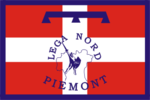
Lega Nord, whose complete name is Lega Nord per l'Indipendenza della Padania, is a right-wing, federalist, populist and conservative political party in Italy. Its current leader is Matteo Salvini.
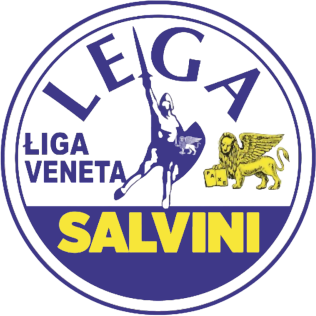
Liga Veneta, whose complete name is Liga Veneta–Lega Nord, is a regionalist political party based in Veneto, Italy.
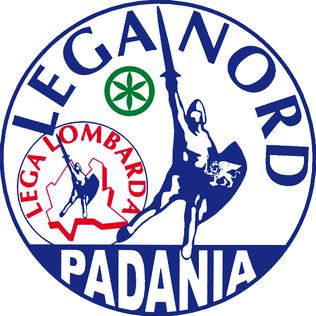
Lega Lombarda, whose complete name is Lega Lombarda–Lega Nord, is a regionalist political party active in Lombardy. It is one of the national sections of Lega Nord (LN) and, along with Liga Veneta, forms the bulk of the federal party, which has been led by Lombards since its foundation.
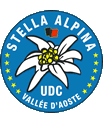
Edelweiss is a regionalist, Christian-democratic political party active in Aosta Valley, Italy.
Autonomists for Europe was a minor regionalist, Christian-democratic and liberal Italian political party. Founded in 2000 by splinters of Lega Nord as a potentially dangerous competitor, it became a rather marginal force. Its leading members were Vito Gnutti and Domenico Comino, both former Ministers for Lega Nord in the Berlusconi I Cabinet.
Piedmontese Union was a regionalist political party active in Piedmont.
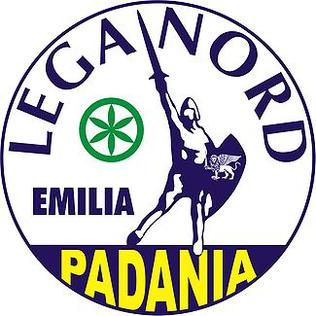
Lega Nord Emilia is a regionalist political party in Italy, active in the Emilian part of Emilia-Romagna. Formed in 1989, since 1991 it has been one of the "national" sections of Lega Nord.
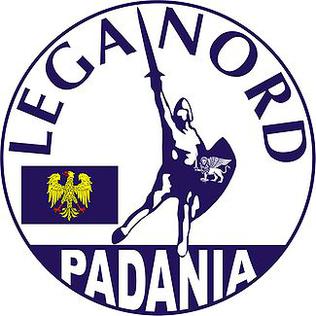
Lega Nord Friuli-Venezia Giulia is a regionalist political party in Italy that functions as the "national" section of Lega Nord in Friuli-Venezia Giulia.

Roberto Cota is an Italian politician, President of Piedmont from 2010 to 2014.

This page gathers the results of elections in Piedmont.

The Politics of Piedmont, Italy takes place in a framework of a presidential representative democracy, whereby the President of Regional Government is the head of government, and of a pluriform multi-party system. Executive power is exercised by the Regional Government. Legislative power is vested in both the government and the Regional Council.
Lega Padana Lombardia, briefly in 2008 part of the Lombardia Autonoma coalition, was a Padanist and autonomist political party active in Lombardy, northern Italy, between 2001 and 2011.

A large round of regional elections in Italy took place on 28–29 March in 13 regions out of 20, including nine of the ten largest ones: Lombardy, Campania, Veneto, Lazio, Piedmont, Emilia-Romagna, Apulia, Tuscany and Calabria.

The Piedmontese regional election of 2010 took place on 28–29 March 2010, as part of Italy's round of regional elections.
The Parliament of Padania, the former Nord and former Parliament House of Mantua, is a body set up by Lega Nord with its internal representation almost electoral basin. It consists of all administrators, regional councillors, mayors and elected MPs in various local and national administrations. The first official headquarters of the plenary meetings of the newborn Po Parliament took place in Villa Riva Berni to Bagnolo San Vito (MN). The second seat in the 2007-2011 of the meetings was located in Vicenza in villa Bonin Maistrello, via dell'oreficeria 21.

The 2017 Lega Nord leadership election took place on 14 May 2017.

Giovanni Fava is an Italian politician of Lega Nord, MP in the Italian Chamber of Deputies from 28 April 2006 to 4 June 2013 and Mayor of Pomponesco for two consecutive full terms from 22 November 1993 to 13 May 2001.

Giuseppe "Gipo" Farassino was a songwriter, folk singer and politician in Italy.

Lega per Salvini Premier, better known as Lega, is a right-wing populist political party in Italy, led by Matteo Salvini. It was founded on December 2017 as the sister party of Lega Nord, with the purpose of representing the party's values and policies outside of northern Italy, as a replacement for Us with Salvini (NcS). Political commentators have described the LSP as a parallel party of the LN, which had been burdened by a statutory debt of €49 million.

